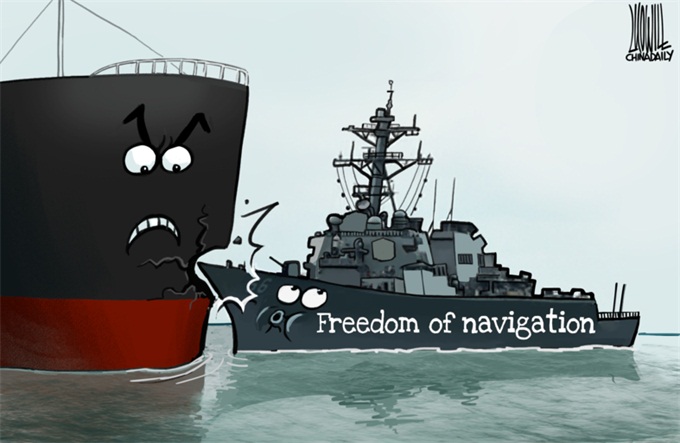Trade war not likely despite US probe
Reciprocal thinking should prevail
Intellectual property has been a constant in China-US trade disputes since the 1980s, a time when the US and Japan were locked in an enduring trade war over steel, intellectual property and automobiles. During those days Robert Lighthizer, incumbent US Trade Representative, established his credentials by leading a campaign of voluntary restraint agreements, countervailing duties and anti-dumping duties against Japanese imports. He might try to do the same against China.
Accusing Chinese enterprises of “intellectual property theft” and enjoying favorable policies vis-à-vis US companies in China, Washington has always wanted Beijing to open its financial market so that American companies could explore the A-share market. It has also expressed the wish of seeing the renminbi continuously appreciate against the US dollar, which it believes will reduce the trade deficit.
The two countries were embroiled in three major intellectual property disputes in the 1990s, but none of them involved more than $2 billion, let alone take a heavy toll on bilateral ties. A trade war is unlikely this time, too, because China has greatly strengthened its intellectual property protection mechanism. Both sides have enough time and wisdom to avoid a full-blown crisis, and China has good reason to confront the US should the latter seek to impose punitive sanctions on Chinese businesses.
Admittedly, the US has been a front-runner in intellectual property management and its knowledge economy will likely continue leading the way over the next two decades or so. So cooperative, reciprocal thinking should prevail among the decision-makers in Beijing and Washington unless tit-for-tat actions become necessary. On its part, China also needs to get rid of dubious enterprises that have violated intellectual property rights of other companies, with or without the Section 301 investigation.
Sun Zhe, director of the Center of China-US Relations at Tsinghua University
























